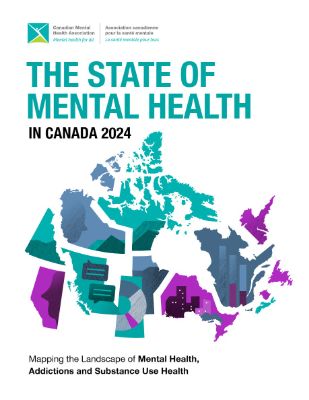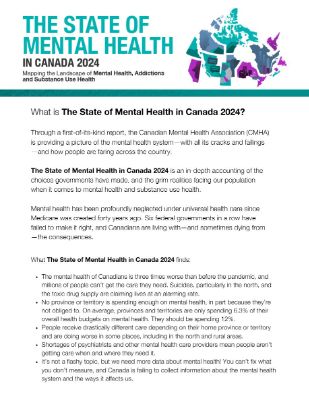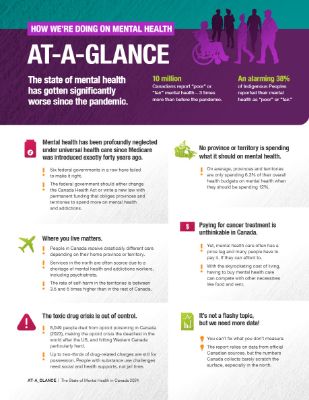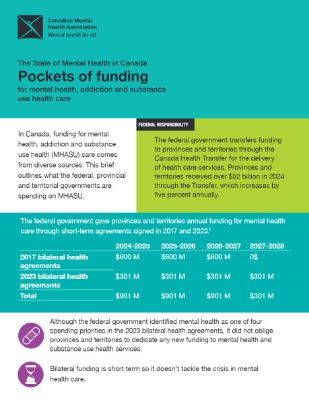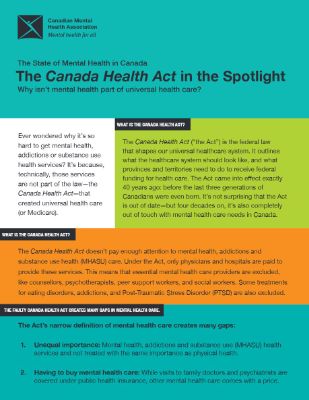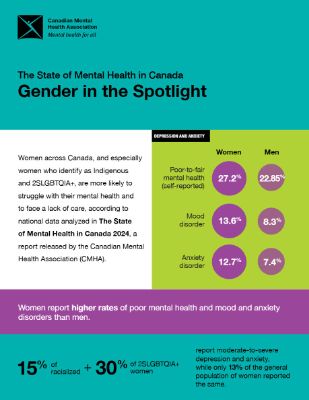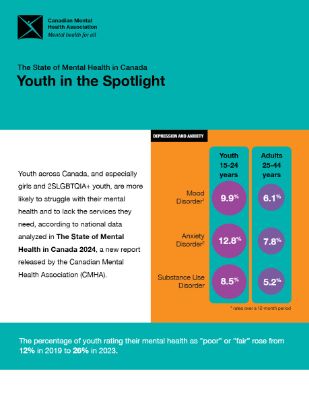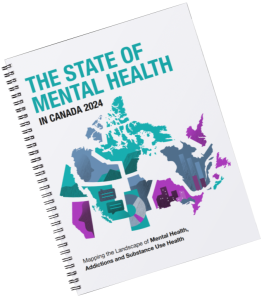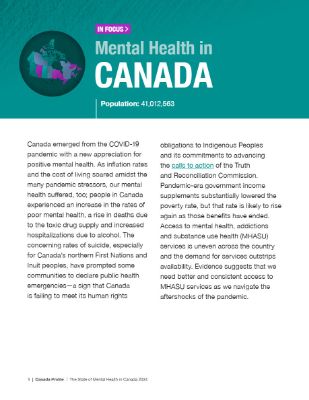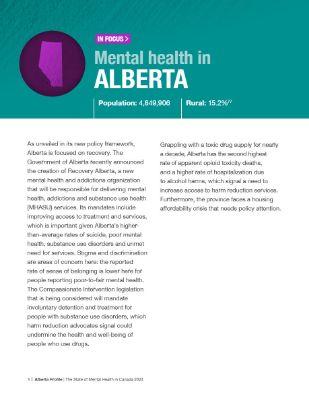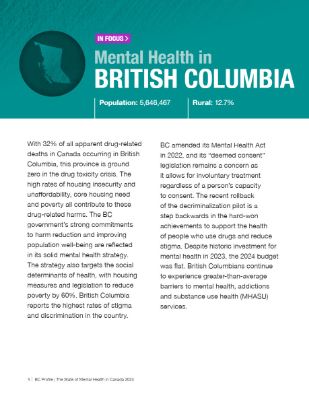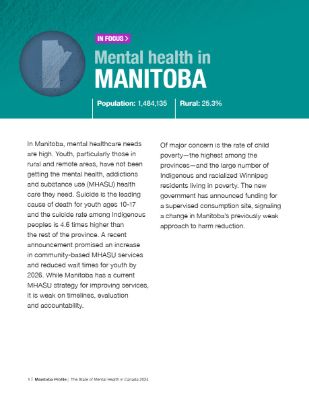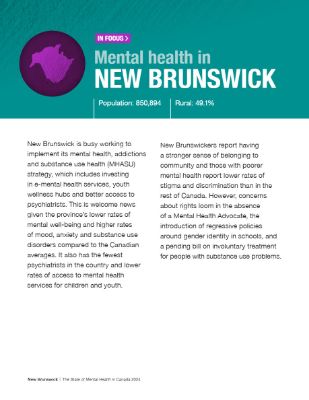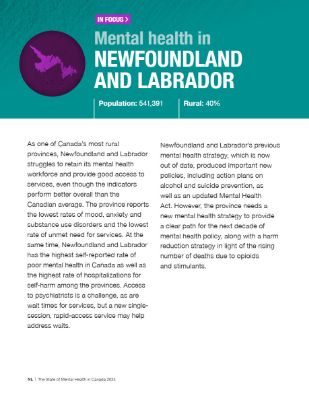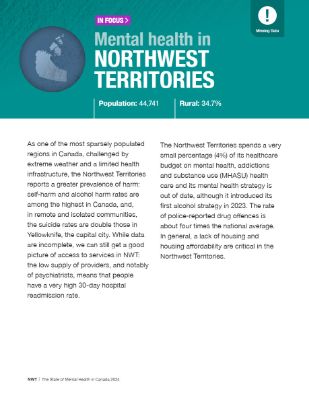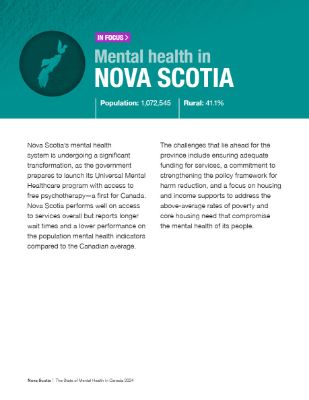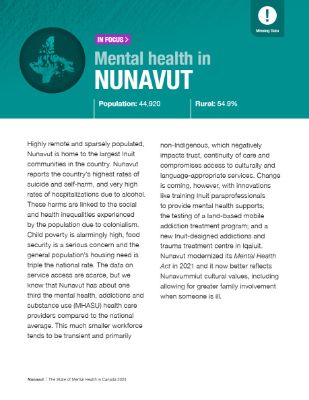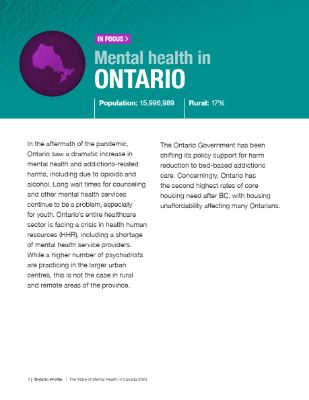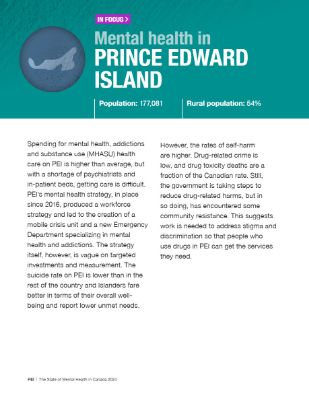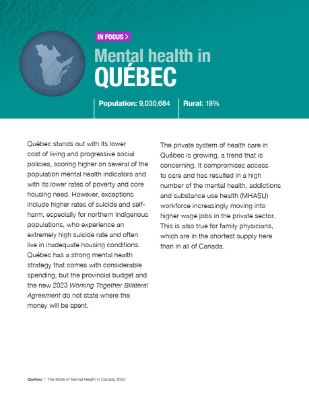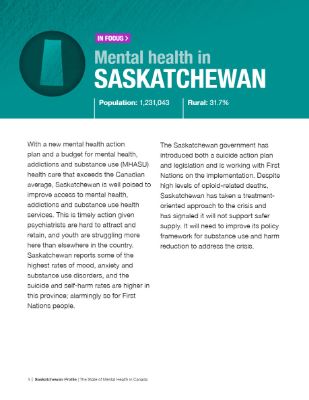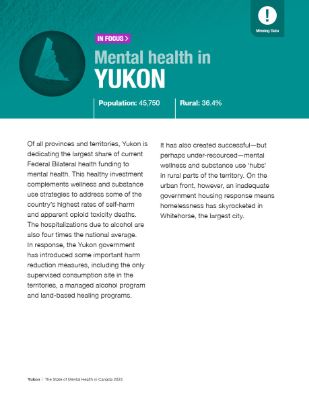Menu
Close

In Canada, mental health is a privilege. It should be a right.
We aren’t expected to pay for life-saving cancer care so why are we paying for life-saving mental health care?
CMHA’s report, The State of Mental Health in Canada 2024, is a first-of-its-kind deep dive into the landscape of mental health, addictions, and substance use health care in Canada using data from across the country.
So how is Canada doing in supporting the mental health of its people? Not great.
At a glance
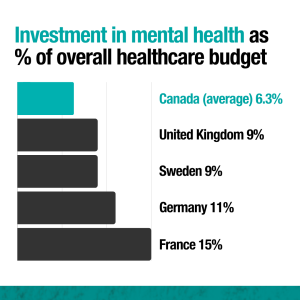


Canada is falling behind
- Mental health in Canada is worse than before the COVID-19 pandemic
- Canada spends less (6.3%) than what peer countries spend on mental health care (15% in France, 11% in Germany, 9% in the UK and Sweden) as part of overall healthcare budgets.
- More than half (57%) of people aged 18-24 who had early signs of a mental illness said that cost was an obstacle to getting mental health services.
- An alarming 38% of Indigenous peoples reported their mental health was “poor” or “fair.”
- People with the lowest incomes report having anxiety 2.4 times more often than those with the highest incomes.
- Canadians with poorer mental health are 50% more likely to live in inadequate housing than those reporting good mental health.
- Only 50% of people with mental health disabilities are employed and a significant number who aren’t employed depend on income supports that keep them in poverty
- The toxic drug supply in Canada is the second deadliest in the world following the US.
- 8,049 people died from opioid poisoning in Canada in 2023, the highest number of fatalities yet.

Finding a way forward
While it sheds light on some grim realities, The State of Mental Health in Canada is fundamentally about finding the path forward and highlights trailblazing mental health, addictions, and substance use health care solutions in every province and territory. These pockets of innovation shine a light on the opportunities for better mental health care across Canada. The report also provides a roadmap for government to improve mental health care.
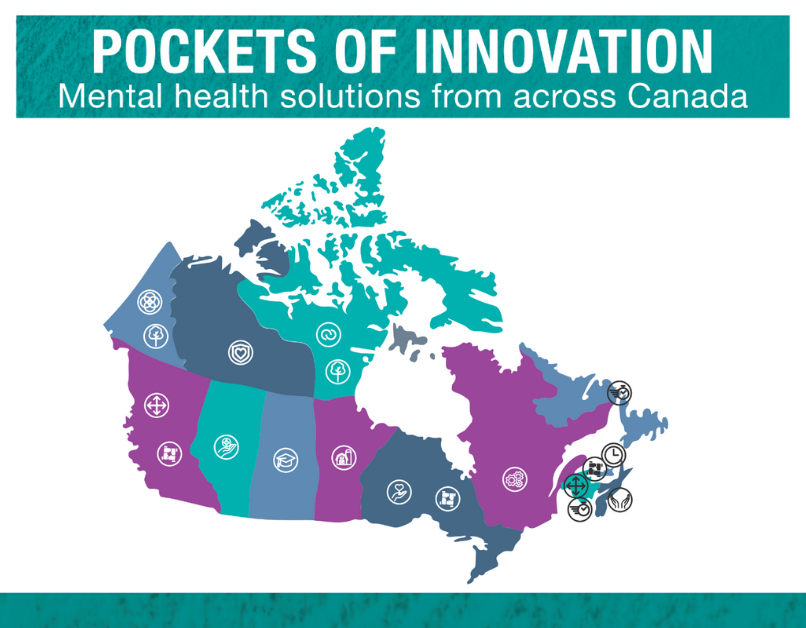
What can you do?
Your support is essential
Explore The State of Mental Health in Canada 2024
